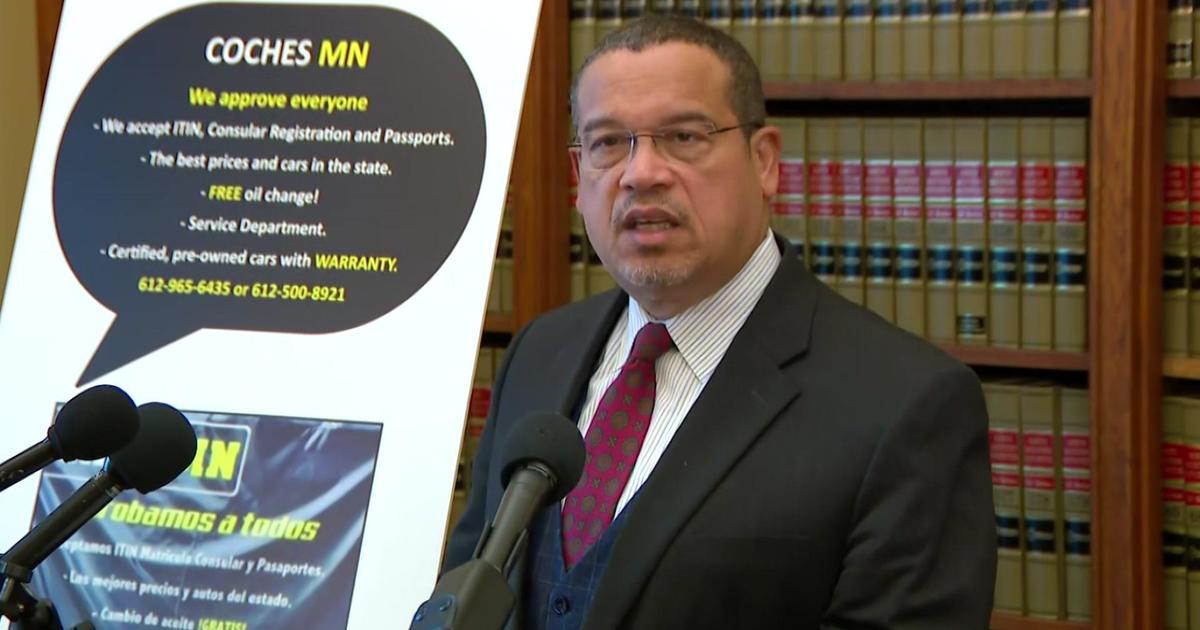Deep Brain Stimulation Offers Relief For People With Parkinson's
ST. PAUL, Minn. (WCCO) – There's a new procedure to have brain surgery while you're wide awake, and people are actually lining up for it.
It's a treatment so effective doctors say patients have checked themselves out of nursing homes after having it done.
It's called "Deep Brain Stimulation," and patients with Parkinson's Disease are coming from across the country to a St. Paul hospital to get it.
"That was the first time I saw my Dad cry, when he was explaining Mom's disease and what all would happen to her," said Julie McCloskey.
They were tears mourning the time, when just for a moment, life stood still.
"Small buttons are hard to handle, getting up zippers are kind of difficult too," Susan McCloskey said.
Susan McCloskey was diagnosed with Parkinson's Disease when she was only 42 years old. It was one Sunday at church, when she noticed her tremor had worsened.
"I was sitting in the pews, and you know, when you're shaking, you're trembling, and the pew was moving," she said.
After years of tremors, endless medications and depression, she was ready to try anything -- even a brain operation while she was awake.
Regions Hospital in St. Paul let WCCO-TV cameras in to film "Deep Brain Stimulation" surgery or DBS on a Parkinson's patient like Susan.
Bette Clement says Parkinson's made her muscles still and her speech difficult to understand.
"Kind of running out of options," Clement said.
As a retired physical therapist, Clement prefers the roles reversed.
"Hard, you're used to being the caregiver, and now you're the care receiver," Clement said.
Clement agreed to WCCO-TV filming her surgery to inspire other patients.
"Not to be afraid of it. You know, for better or for worse," Clement said.
Neurosurgeon Jon McIver describes the device he's implanting as a pacemaker for the brain. Electrodes are put inside the brain and connected to a pacemaker inside the body.
"We are trying to disrupt abnormal communication between the cells so the communication is more normal," said Dr. McIver.
Tiny electrical pulses are then sent from the pacemaker to the brain. By the end of the six hour surgery, most of the overactive nerve cells are disabled. The doctors test to see if the surgery worked for Bette by turning the device on. Bette's right arm goes from being rigid and resistant to no stiffness at all. Susan McCloskey is now six months post-surgery herself.
David Tullar, the same physician's assistant in the operating room with Bette, says the best way to see Susan's progress is to turn off her machine.
Within 30 seconds, McCloskey's deep tremor begins to set in.
"I'm closing in real tight and it feels real heavy, it's like squeezing you," McCloskey said. "It's like cement or a sack of sand on you, and it just takes your breath kind of away when you try to talk."
The stark difference brings McCloskey to tears.
"Unbelievable how that surgery…it's just really a miracle," McCloskey said.
Tullar turned the device back on and within seconds, the shaking stops.
Perhaps after seeing the surgery done, you understand why Susan's son, Charley, gave her a trophy that reads, "Congratulations Susan McCloskey for Conquering Deep Brain Stimulation."
"I didn't win any sports, no swimming, no spelling bees, nothing. I had surgery, that saved all of us," McCloskey said.
While there isn't a cure, technology has returned hope to these women and in just a moment, life regained motion.
"It's a daily privilege to be trusted by patients to help them," Dr. McIver said.
"We did, we got our Mom back," Julie McCloskey said.
If you're wondering how patients can stay awake during the operation, it's because our brains don't have any pain receptors. DBS is currently being investigated as a treatment for general depression and bipolar disorder as well.
Saturday, May 12 is Minnesota's Walk for Parkinson's.
You can learn more about the walk at the Parkinson Foundation web site. Click "Register" and select "Twin Cities." You can find Susan McCloskey's fundraising page under the team name "Blooming Susans."
The average cost of deep brain surgery is around $70,000. Most insurance companies cover the therapy.
There is additional information on DBS on the Medtronic web site.



